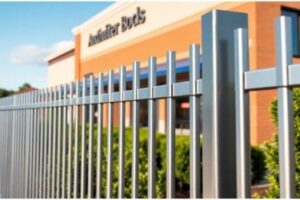The regrettable reality is that only a third of all construction projects in the US reach completion on time and without budget overruns. Disputes, improper scheduling, poor budget planning, sudden changes to the design, and unforeseen events are just some of the many things that can cause construction projects to be delayed or fail to live up to the expected standards. It also doesn’t help that construction is easily affected by supply disruptions from the broader economy.
In the following article, construction and engineering specialists from VERTEX will shed some light on the concepts of quality and efficiency in construction and how they can be applied at the different stages of construction to increase the chances of success and mitigate risks that may derail a project. Read on.

Table of Contents
What is construction efficiency?
Efficiency in construction refers to the ability of contractors to operate consistently within a project’s budget and schedule. Contractors that are known for their efficiency tend to achieve considerably greater profits than their competition.
The benefits provided by increased construction efficiency include:
- Faster project completion
- Reduced project costs
- Less material waste produced during construction
- Contractors can submit more competitive bids
- Improved reputation
What is construction quality?
In construction projects, quality means that the workmanship on structure and its components were completed in accordance with standards defined in the Scope of Work. In other words, the work was carried out in a way that meets or exceeds the client’s expectations and the agreed-upon standards (such as the building code).
The factors that determine project quality include:
- The owner’s project requirements are well defined and properly budgeted
- The project has a realistic schedule and was completed on time
- The designed specifications in the construction documents were met in full
- The final product adequately fulfills its intended purpose
- There were no claims of construction defects
How can you improve the quality of a project?
The single most effective way to avoid delays and cost increases is by thoroughly planning your project from the earliest stages. To do this, you will need to carefully define and establish the Owner Project Requirements & Basis of Design so your construction team can correctly determine details such as the manpower, equipment, processes, and materials the project needs before the actual work begins.
The following are effective methods to achieve this:
Hire experienced consultants
Getting the right people involved as early as possible can make all the difference. From creating expert-level designs and budgeting them accordingly, to devising a schedule that properly accounts for both foreseeable and unforeseeable events that may cause delays and other issues, expert construction consultants can help you mitigate risks and maximize the quality and efficiency of your project.
Use reliable construction management software
High quality construction management software makes it easy to keep the construction team and job site organized. There are existing cloud-based platforms that can handle: contractor communication, bid management, document management, invoicing, time sheets, incident reporting, job scheduling, and more.
Invest in training
Providing vital training for your employees (for example, training a supervisor on how to effectively guide workers on a specific task) is a great way to ensure a particular part of your project is done in accordance with client expectations and accepted standards.
Adopt a quality assurance program to perform quality control
Established contractors and design professionals typically have a Quality Assurance (QA) program to review the workmanship of the project. Quality Control (QC) is a set of documentation and observation activities during construction that aims to make sure the final product fully meets the client’s specifications. It also determines whether corrective measures are necessary. QC inspectors and specialists operate hand-in-hand with Quality Assurance experts by closely monitoring the work as it occurs, ensuring the activities laid out in the QA program are properly followed.
Make use of modular construction and prefabrication
Modular, prefabricated buildings and component systems are becoming more and more popular in modern construction projects. By working with your design team, you can incorporate modular / prefab systems in your project, which can cut down on project costs, and the amount of work on-site, and reduce the risk of quality issues during construction. The disadvantage of modular structures is that they’re less customizable than traditional buildings.




